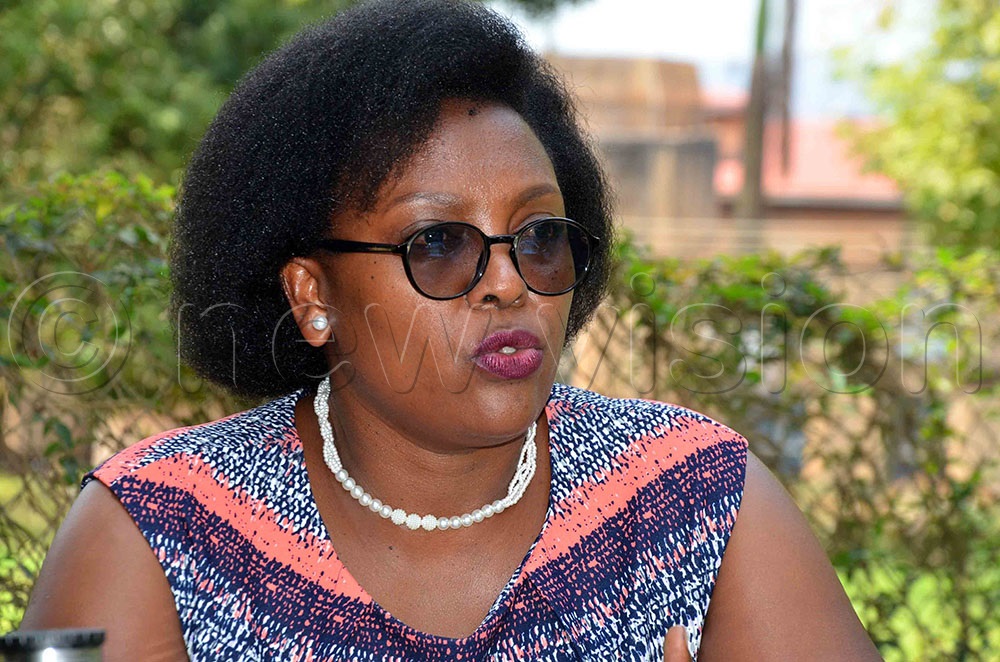Makerere University roots for Road Users’ policy
Sep 24, 2021
Ngabirano said without infrastructure that favours mobility of disadvantaged persons, it becomes almost impossible for them to move safely.

Ngabirano said without infrastructure that favours mobility of disadvantaged persons, it becomes almost impossible for them to move safely. (Credit: Abou Kisige)
Abou Kisige
Photo Journalist @New Vision
ROAD | SAFETY | NGABIRANO
KAMPALA - Physical planners at Makerere University (MAK) have asked government to come up with a road users’ policy to ensure safety of disadvantaged groups, especially at busy junctions.
Makerere Physical Planning Researcher, Amanda Ngabirano said without infrastructure that favours mobility of disadvantaged persons, it becomes almost impossible for them to move safely.
Ngabirano said a four-month survey at Kampala’s main junctions of Wandegeya, Clock Tower; Jinja Road near Kitgum House shows that vulnerable road users are not considered which poses a threat to their lives.
“We have recommended the facilitation policy and planning practice to meet the needs of disadvantaged groups, making transport infrastructure more resilient but also inclusive in the process of preparing these plans and usage of road space," she said.
Ngabirano, also Uganda’s Partner for High Volume Transport Research Programme at Makerere University argued that if the road is made available, it has to cater for everyone in terms of safety.
The programme is funded by UKAid, Foreign Common Wealth and Development Office.
“If a junction has been put up and signalised, who benefits from it and where is the vulnerable person placed in that junction and what are their experiences,” Ngabirano said.
She appealed for the need to make transport planning more inclusive and responsible for the impacts of climate change.
Ngabirano made the remarks while presenting an assessment of road infrastructure in Kampala at the meeting on the mobility needs of disadvantaged groups from Ethiopia, Rwanda, Zambia and Uganda.
The assessment is aimed at enhancing the capacity of transport planners in Kampala. The assessment highlighted challenges transport planners face in incorporating the views of the disadvantaged groups when they are doing transport planning.
The revelations come at a time when the government is constructing main highways and flyover roads in and around Kampala city.
Ngabirano said boda boda as a means of public transport is loved and hated in the same measure because they are a source of livelihood for the youth but also provide quick convenient means of transport within the city.
“Our preliminary findings have shown that they are also equally valuable but they are exposed to road safety challenges when they mix up in traffic. The mix up in transport with boda boda makes transport a bit harder for the disadvantaged groups more than the able-bodied people,” she explained.
She warned that if the infrastructure is being utilised by other activities like vending and motorcycles are using them, it becomes risky for the disadvantaged road users.
Kampala Capital City Authority Spokesperson Daniel Nuweabine said that currently, the major junctions which are signalised have a demand button for pedestrians but they are not used as it is required.
“There is a need to sensitise people on how to demand green light whenever they are using the major junctions and we are planning to start animations in October to teach people how to demand green light while using signalised junctions,” he said.
Nuweabine added that under the African development bank project, they are working on 70 kilometers of road in urban centers and through this, there are planning to put favourable means for vulnerable people like enough lighting especially at night, walkways for pedestrians, bicycles and motorcycles.

No Comment